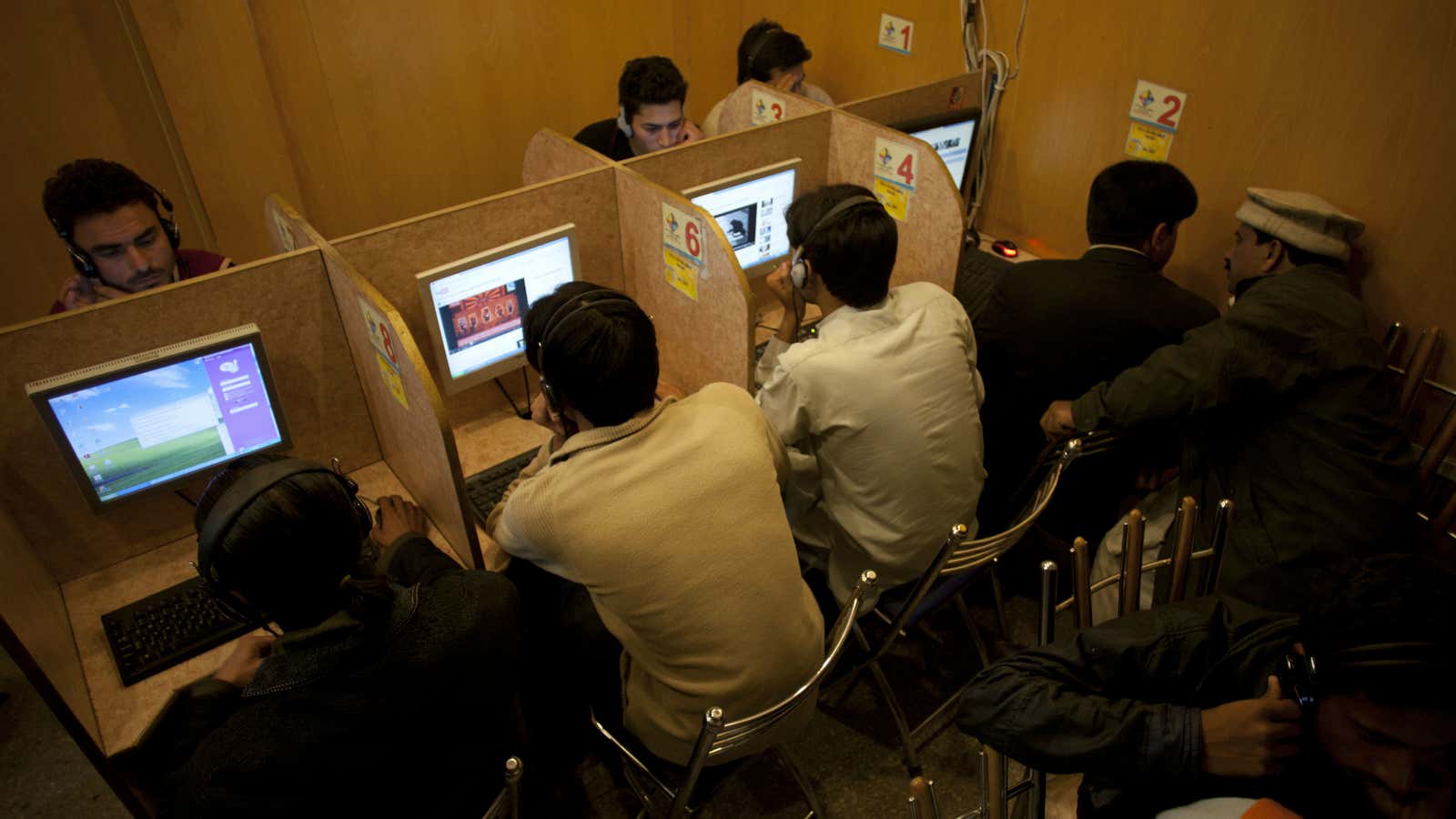Since September, Pakistanis trying to access YouTube on their mobile phones and computers have been getting an error message. The website has been banned by the Pakistani Ministry for Information Technology because of a video titled “Innocence of Muslims.” The video, deemed offensive to Muslims, led to massive protests in Egypt, Libya and Pakistan in 2012.
But while the global furor over the trailer has died down, the ban on YouTube remains in effect.
This week, a parliamentary committee recommended a continuation of the ban. Pakistan does not have a localized version of YouTube, and the global version of the website still has the video, resulting in the “all-or-nothing” ban. In countries where YouTube localizes content, such as Malaysia and Indonesia, YouTube officials have removed the video but allowed access to everything else. The inability to remove the offending video alone stems from the lack of a legal assistance treaty between the US and Pakistan; the latter cannot thus ask US-based Google, which owns YouTube, to support its request for removal, according to an official close to the matter who requested anonymity.
Indeed, YouTube says countries with localized versions of the website have to abide by local laws. “When we are notified that a video is illegal, we will restrict access to it in that country after a thorough review. In countries where we are not localized, like Pakistan, people access the global version of YouTube on youtube.com. It is Google’s goal to offer local versions of YouTube to more places worldwide, but it takes time,” said Myriam Boubill, spokeswoman for Google Asia Pacific.
Is one video worth blocking YouTube for a whole country and is the motive purely to prevent access to offensive content?
For many, the ban signals a move by the government to curtail the right of freedom to information for nearly 29 million internet users. Shahzad Ahmad, the country director for Bytes 4 All, a human-rights organization focusing on internet and communication, believes the ban is politically motivated. “The only role that religion has played in this or any other communications bans is that it makes for a very palatable excuse to sell to the masses,” says Ahmad, adding that YouTube has also been used in the country to expose corruption and human-rights excesses. “These violations range from high-handedness of agencies, corruption by high-level military officers and extra-judicial killings in Swat, Karachi and larger Balochistan.” He is also concerned at the adverse effect of the ban on businesses, education and tourism. With upcoming elections, many wonder if politicians want to prevent videos of abuse of power or election rigging being uploaded or accessed on the website.
Pakistan is no stranger to state-enforced black outs. Under military rule, the press was often subject to censorship. However, the internet appears to be the government’s new target. In February 2012, a government advertisement calling for bids to develop a URL filtering and blocking system sparked a wave of condemnation. The government was forced to withdraw the advertisement. With fears that this is the beginning of a larger censorship agenda gaining strength, all Pakistanis can do is continue to refresh their browser.
